The Best Ways to Rebuild Your Credit Score
Having a good credit score affects almost every facet of life. Credit scores are a factor when applying for apartments and car loans. Many employers even look at credit scores before offering a prospective employee a job. It is no wonder many Americans are searching for .
Learning how to improve your credit score can be incredibly confusing. There is a long list of factors affecting your credit score, and each negative hit is fixed in different ways. Removing late payments, collections, and inquiries are a few ways to fix credit scores but knowing the proper procedure is confusing and takes a lot of time.
What to Look for in a Credit Report
If you want to improve your credit score, you must first start with reviewing your credit report. You are entitled to free credit reports every year, but knowing what to look for when you get it can be puzzling.
| Personal Information | The first step in ensuring a credit report is correct is checking personal information. Verify the following components are accurate:
|
| Credit Accounts | This section is essential to analyze because there can be a lot of inaccuracies. Look for the following.
|
| Public Records | Many people do not realize the effect public records have on their credit. Ensuring all public records are correct can help fix your credit score.
|
| Inquiries | Companies are not allowed to inquire regarding your credit without your authorized consent. Make sure all inquiries are correct and authorized. |
How to Dispute Items on Your Credit Report
If there are inaccuracies in your credit report, it is vital to dispute them, so your credit is not affected by erroneous information. The steps to dispute credit inconsistencies are convoluted and time-consuming but can be completed independently.
- Write a letter to each credit bureau with your full name, each mistake, evidence of the inaccuracy, and a copy of the report.
- Send the letter via certified mail.
- The credit bureau has 30 days to investigate your dispute.
- The credit bureau must give you a copy of the results.
- If the dispute is not resolved, you can file a dispute with the business that reported the inaccuracy by sending a validation letter. This letter asks for proof of delinquency.
- If the credit report isn't resolved, you can send demand letters to the agency for failure to correct inaccuracies. You can also send demand letters to for damages related to inaccurate credit reports.
8 Ways to Rebuild Your Credit Score on Your Own
If your credit is in disrepair, do not despair. There are several .
- Pay bills on time.
- Keep balances on credit lines low.
- Secured credit cards are a great way of rebuilding credit history.
- Get a secured loan or a credit builder loan. This can also help you build savings as a bonus.
- Ask a loved one to co-sign a loan for you to show financial responsibility.
- Pay credit card balances more than once a month to keep balances low.
- Ask a loved one if you can be an authorized user on their credit card.
- Keep credit cards open. Aged credit accounts positively affect credit scores.
How to Clean up Your Credit Report Using DoNotPay:
Fixing and rebuilding credit is complex, and finding the errors and addressing them is confusing. If you do know how to improve your credit, it will still take a lot of time.
Luckily DoNotPay makes cleaning up your credit fast and easy. If you want to clean up your credit report but don't know where to start, DoNotPay has you covered in 3 easy steps:
- Search Clean Credit Report on DoNotPay.
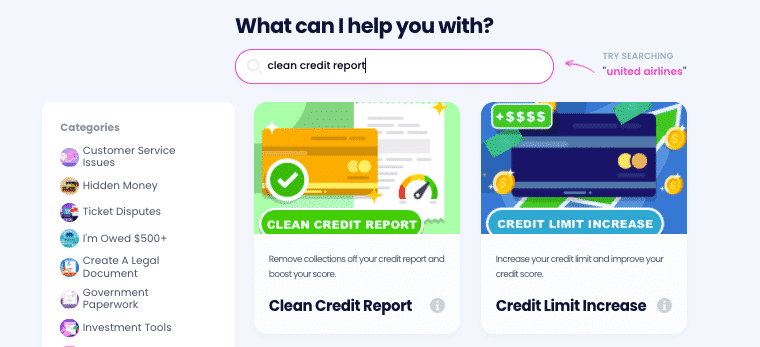
- Prepare a recent copy of your credit report that you can use as reference.
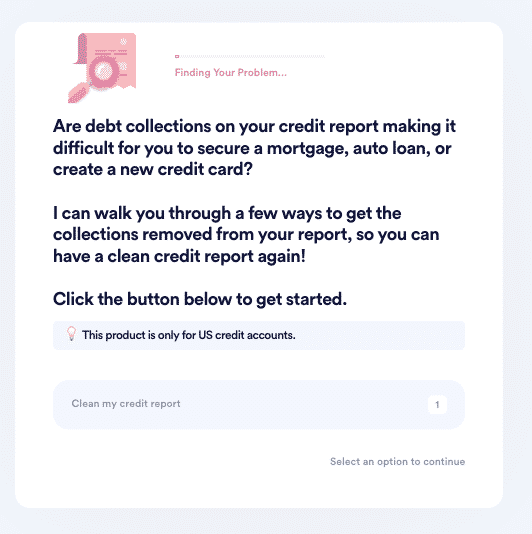
- Let us guide you through the 4 potential options:
- If you've already paid off your debt, we'll help you file a Goodwill Removal Request to get it removed.
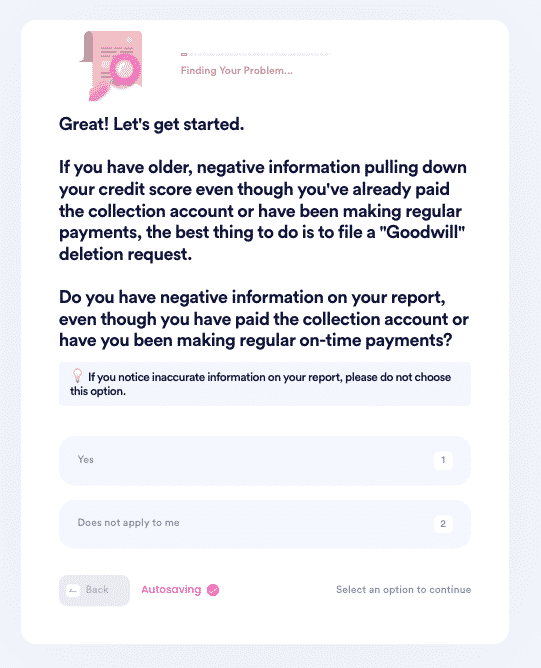
- If you notice any errors in your report (we have a list of common errors you can use!), we'll help you file a credit dispute to the creditor or major credit bureaus.
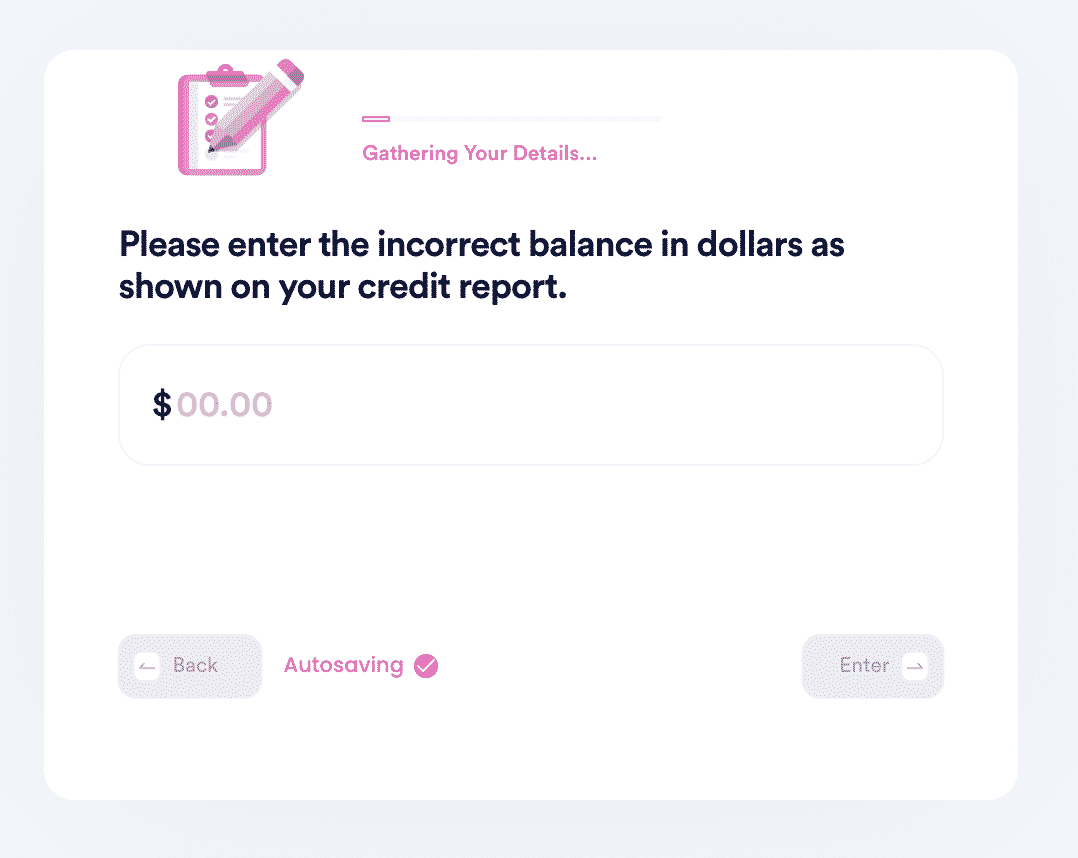
- If there are no errors, we'll check if you're still eligible to file a debt validation request. If they can't validate your debt, they're required to remove it from your report and they can't collect it!
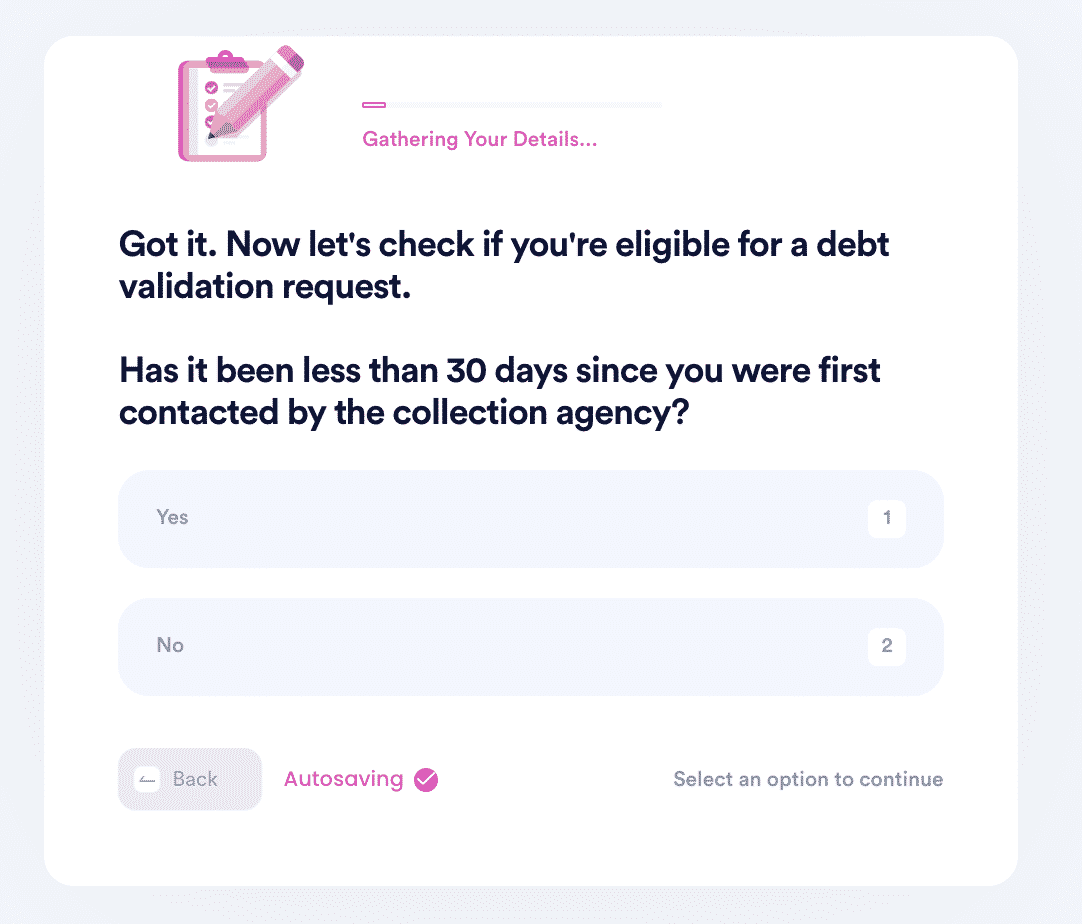
- Lastly, if none of the above options work, we'll help you file a pay-to-delete negotiation letter. You can customize the amount you are willing to pay in exchange for getting the item removed.

What Else Can DoNotPay Do?
DoNotPay can do more than just clean your credit card reports. Get help with:
today!
 By
By